Chris Crandall read the law at Vermont Law School and received his doctorate from the University of South Florida. His research focuses on the intersection of higher education and geopolitics. The words written here are his own.
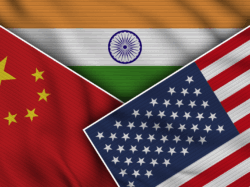
On January 1, 1990, Charles Krauthammer penned a piece for Foreign Affairs in which he asserted that the world had now entered the “Unipolar Moment,” a moment in which the United States remained the sole superpower and arbiter of world affairs through the American-led financial, trade, economic, and security-based system. In this article, Krauthammer stated: […]
Read More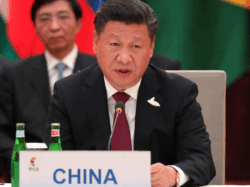
On June 11, 2025, Chinese President Xi Jinping held a highly anticipated meeting with American President Donald Trump regarding the ongoing trade war between the two nations. In this conversation, President Xi requested that Chinese students be allowed to continue their studies in American universities in exchange for reduced tariffs and continued access to the […]
Read More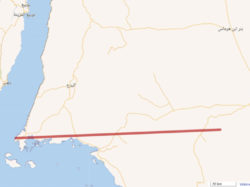
In the sprawling deserts of Saudi Arabia, a new city-state is slowly rising from the sands. This city, named NEOM, is part of Saudi Arabia’s ambitious 2030 Vision Plan to make the oil-rich kingdom one of the world’s most technologically advanced nations. The project is estimated to cost the Kingdom of Saudi Arabia (KSA) $500 billion and […]
Read More
Arcata is a small town lying behind the Redwood Curtain of Northern California, about two hundred and fifty miles north of San Francisco. It was a place where diversity already existed, yet nobody had to talk about it. Much of this diversity was due to the location of Humboldt State University, a four-year state school […]
Read More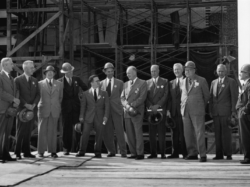
When Dwight D. Eisenhower stepped down from his generalship as the Supreme Allied Commander of Europe following the Second World War, he became the President of Columbia University. During his short tenure at the university, a professor approached him and extolled the virtues of European scientists at the institution, to which Eisenhower queried, “They may […]
Read More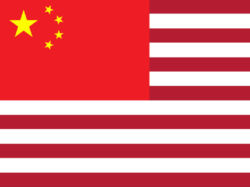
In his Farewell Address to the United States Congress in 1951, former Supreme Allied Commander of the Pacific General Douglas MacArthur gave a riveting speech. In that speech, he stated a truism that is as relevant today as it was nearly seventy-five years ago: There are some who, for varying reasons, would appease Red China. […]
Read More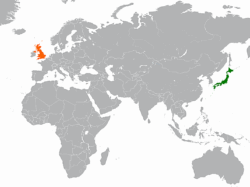
The year is 1901, and the British Empire rules the waves. The small island nation’s maritime empire crisscrosses the globe, governing over twenty-five percent of the world’s population. As a blue power, Britain’s national strategy is to protect its trade networks, ensure freedom of navigation for its merchants, maintain the balance of power in Europe, […]
Read More
With the largely unregulated release of both domestic and foreign-based artificial intelligence (AI) technologies in the United States, corporations, businesses, and governmental institutions are seeking sustainable policy solutions to address disruptions to their normal organizational operations. American higher education institutions, as corporations tasked with maintaining institutional solvency and delivering rigorous educational programs, are also facing […]
Read More
When one observes a map, it often tells a story. If an individual viewed a map during the Second World War, the Atlantic was the centerpiece, with Europe and the United States on either side. Following Great Britain’s decline and America’s rise, the United States stood front and center, with the Pacific and the Atlantic […]
Read More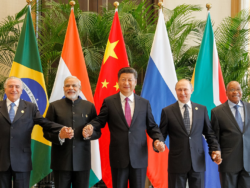
The world has entered a new era of Great Power competition, where civilizational and regional blocks are coalescing to create large spaces of economic, trade, and military influence. Leaders and experts worldwide have termed this the new era of multipolarity. The political, economic, and technological systems of the West have been hybridized and fused by […]
Read More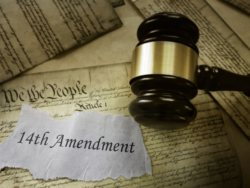
Since the passage of the Higher Education Act of 1965 and under the protections of the 14th Amendment, American universities have been legally required to provide equal access to all students, regardless of race, sex, age, disability, or religion. These institutions are meant to be merit-based and colorblind, evaluating individuals on their personal abilities rather […]
Read More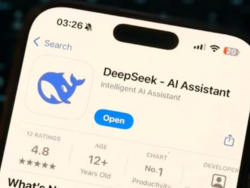
The newly released Deep-Seek artificial intelligence (AI) program, which is manufactured, owned, and operated within the sovereign bounds of the People’s Republic of China, has disrupted technology markets across the globe and raised new questions in the foreign policy fields of Great Power Competition. An often overlooked aspect of this newly emergent technology, however, is […]
Read More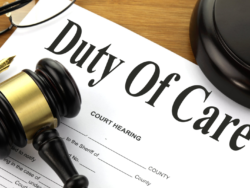
While administrators and professors are aware of the importance of academic freedom for students studying in the United States from abroad, equally important, yet less often discussed, is the issue of the consequences of controversial research conducted in American higher education institutions by undergraduate international students when they return to their home countries. As a […]
Read More